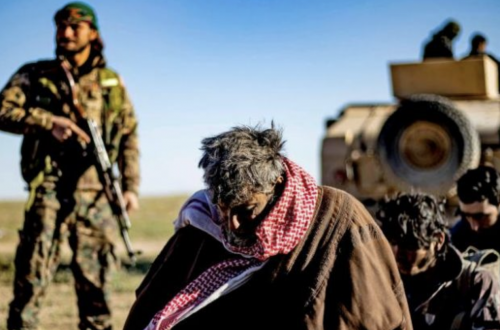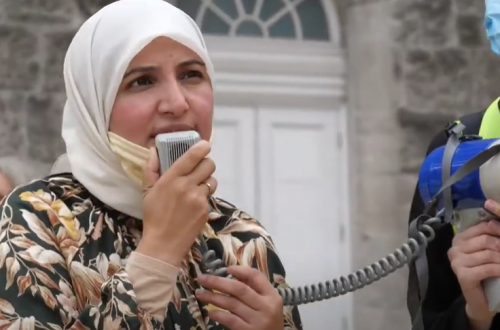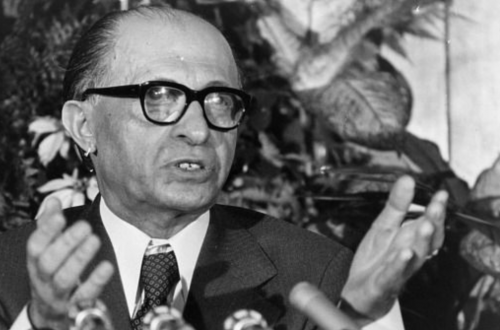This is a cross post from Hadar Sela – Managing Editor BBC Watch. With all that has been happening it took me a while to post it up. With the end of hostilities (hopefully) a great deal is being written abut the failure of mainstream media to report on Hamas or show images of Hamas fighters in Gaza or rockets being fired at Israel. I am sure that this is something that will be raised a great deal more in the near future. So although a little late, (it was originally written while the PSC were demonstrating outside the BBC) this excellent piece by Hadar is still highly relevant.
The Palestine Solidarity Campaign needs no introduction and neither does its recently accelerated campaign to try to persuade the British public that the BBC suffers from pro-Israel bias. At her usual Electronic Intifada gig on August 3rd, PSC activist Amena Saleem wrote:
Pro-Israeli broadcasters are finding it ever harder to defend Israel in the face of the large-scale massacres and destruction in Gaza, but the BBC is determined to do its best, sacrificing all claims to impartiality and journalistic integrity in the process.
In addition to flooding its radio and television programs with Israeli spokespeople, while keeping Palestinian voices to a minimum, the BBC, as it did during Israel’s 2012 assault on Gaza, has taken to presenting pro-Israel commentators as independent.
BBC audiences are, therefore, given strong doses of pro-Israeli propaganda — being told that Hamas is using civilians as human shields, that Israel has shown nothing but restraint in the face of constant rocket attacks, that it is defending its citizens and so on — while under the impression that they are hearing neutral, independent comment.
These key Israeli messages are, of course, more likely to be believed by viewers and listeners if they think they are impartial observations, rather than the opinions of pro-Israeli spokespeople.
Saleem goes on to produce a list of examples of what she claims were inadequate introductions on the part of the BBC which failed to clarify the supposedly pro-Israel stance of contributors and recounts that in one case:
The Palestine Solidarity Campaign wrote to the BBC to remind it of its own editorial guidelines, which include this: “We should normally identify on-air and online sources of information and significant contributors, and provide their credentials, so that our audiences can judge their status.”
For once, the BBC was quick to write back, sending this by email: “We apologize for this and would like to assure you that the matter has been raised with the relevant editorial staff at the BBC News Channel, who have been reminded of the need to clearly describe the ideology of such organizations in our coverage.”
BBC editorial guidelines on impartiality do indeed relate to the issue of clarification of the viewpoint of interviewees in section 4.4.14 and in October of last year the BBC’s Editorial Complaints Unit recommitted to the practice of “summarising the standpoint” of contributors after the Palestine Solidarity Campaign made a complaint based on similar claims to those appearing in Saleem’s above article.
However, the selective nature of Amena Saleem’s interest in this matter indicates that it does not stem from genuine concerns about BBC impartiality and journalistic integrity but is a tactic employed in the broader PSC public relations strategy.
Since the ECU decision of October 2013 in response to a PSC complaint, that organization has, for example, had nothing to say about the fact that in January of this year the BBC Radio 4 ‘Today’ programme failed to identify Amena Saleem herself as a member of the Palestine Solidarity Campaign as well as a contributor to Electronic Intifada and the Hamas mouthpiece MEMO. Neither did the PSC object to the fact that the audiences were not provided with information on the topic of its own “ideology” when former ‘Mavi Marmara’ passenger and PSC director Sarah Colborne was interviewed by the BBC on January 31st.
The Palestine Solidarity Campaign did not apparently think that the BBC had transgressed any editorial guidelines when it promoted a PSC-initiated campaign on the subject of Israeli Bedouin in November 2013 or when it failed to identify a PSC patron the following month. No complaint was heard from the PSC when the BBC failed to clarify its own former Gaza correspondent’s links to that organization in March 2014 or when, as recently as July 26th 2014, a PSC speaker was presented by the BBC merely as a “journalist from Gaza”.
Amena Saleem’s outrage is equally mute when the BBC fails to properly identify activists with groups such as the flotilla-organising ‘Free Gaza Movement’ or the International Solidarity Movement and refrains from informing audiences of their “ideology”.
Clearly BBC editorial guidelines on impartiality defeat their own object if they are selectively employed in a manner which allows them to become a tool in the public relations campaign of an opaquely-funded group which provides support for a terrorist organization proscribed by the UK government. But until BBC audiences get to hear an accurate summary of the standpoint of the Palestine Solidarity Campaign and similar Hamas-supporting groups, that is precisely what the corporation is allowing those guidelines to become.
Gene adds: A must-read by Matti Friedman, a former reporter and editor for the Jerusalem bureau of the Associated Press, on how the international media, despite their laser-like focus, get Israel so wrong.


